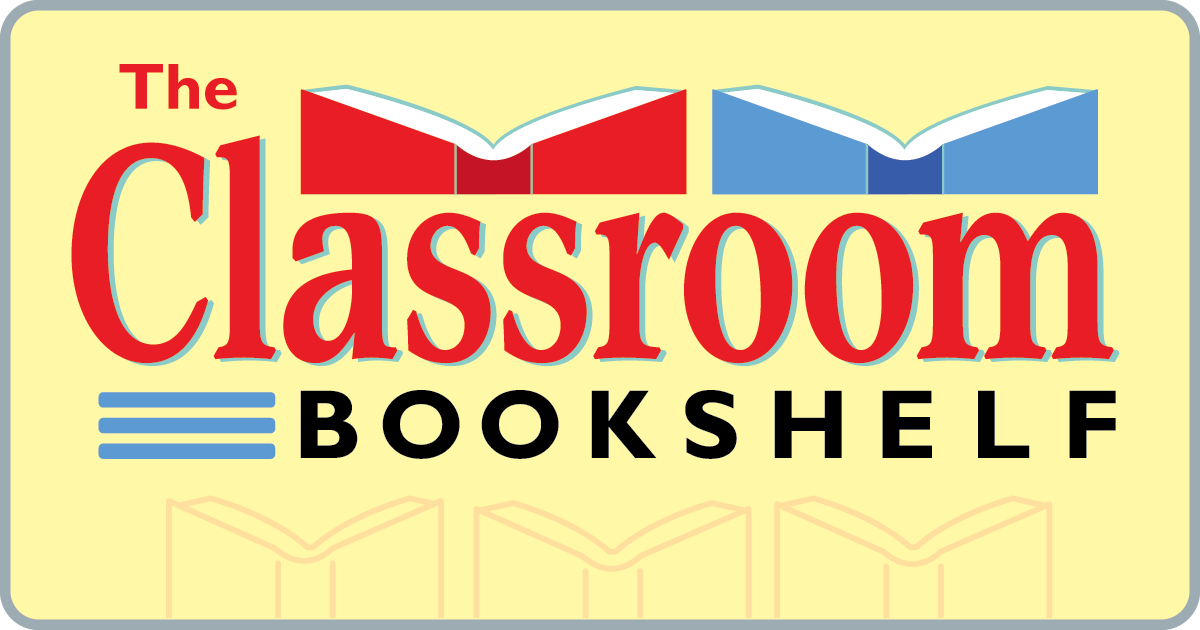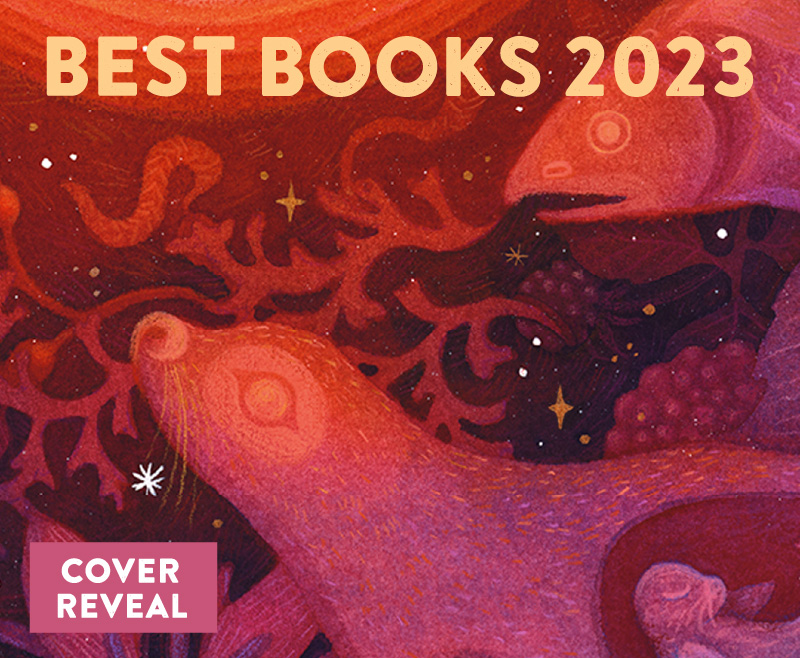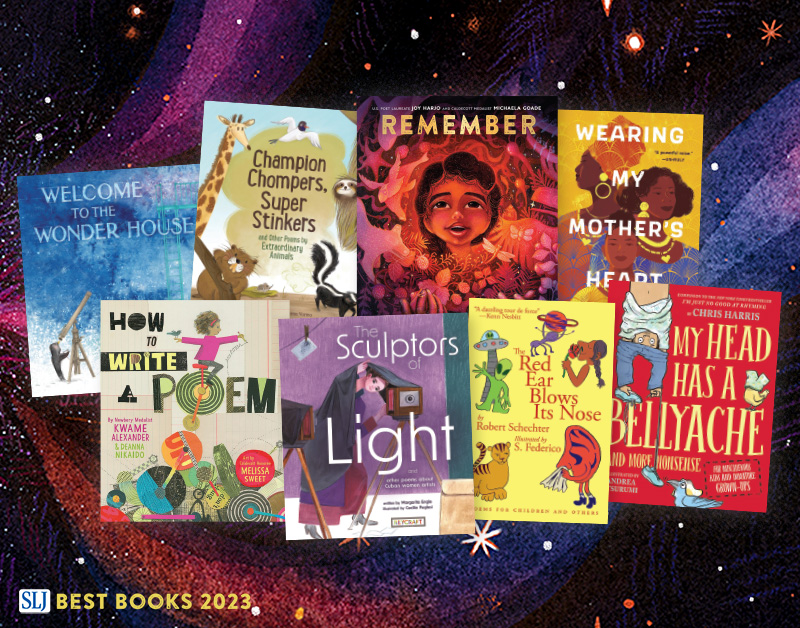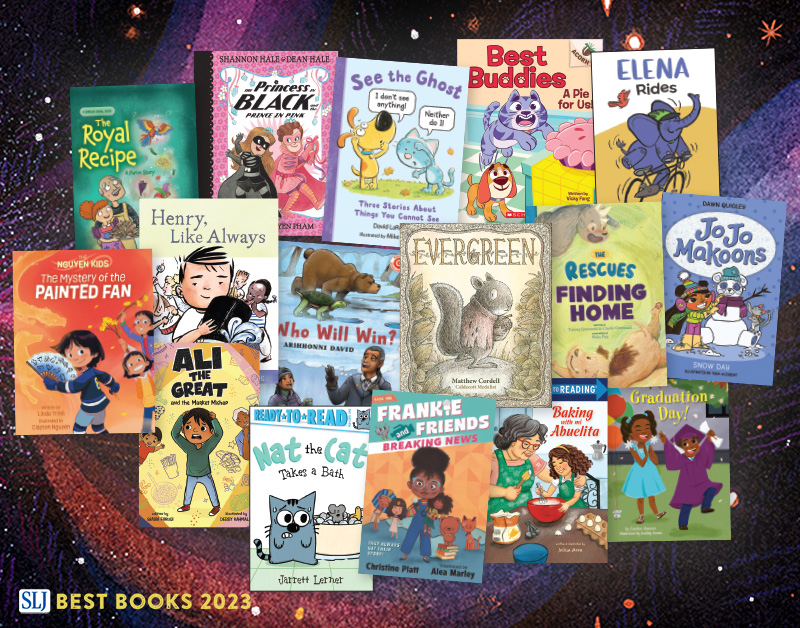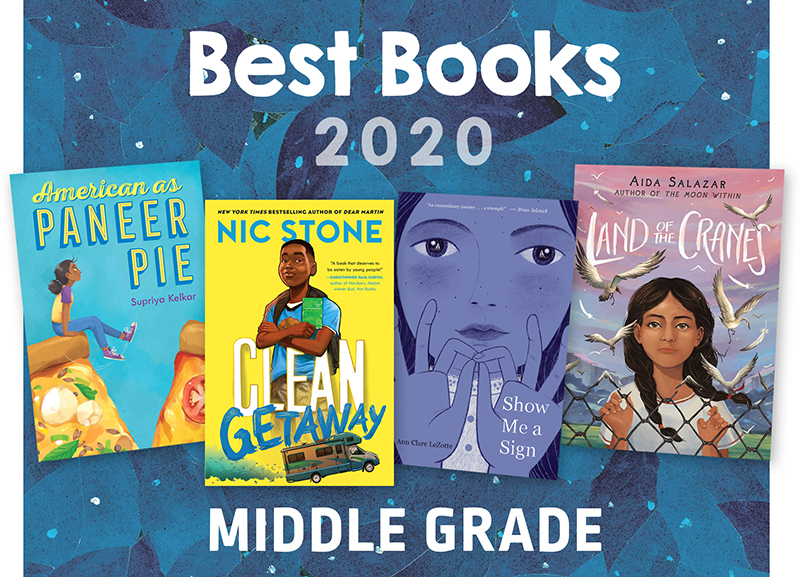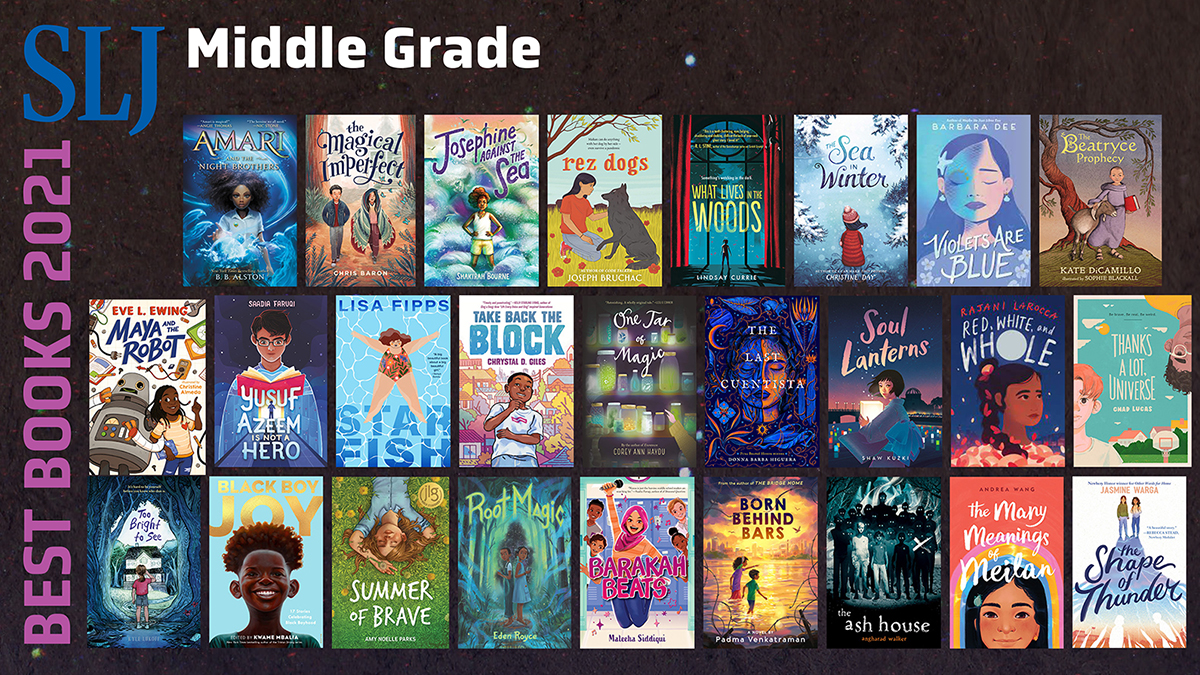Reading Together….. Books as a Site for Connection and Comfort

Since we first posted Coronavirus Support: Teaching Resources for K-8 Online Learning three weeks ago, our world has changed dramatically. Many of us now find ourselves juggling multiple responsibilities: caring for our families and our loved ones; creating learning opportunities for our students and our own children; teaching our college students in new formats and on new platforms – all with a backdrop of fear, anxiety, uncertainty, and grief.
Over these three weeks, it has been inspiring to watch the proliferation of resources in the children’s literature community and in the field of education more generally. Authors and Illustrators have opened up their homes and studios, recording read alouds and demonstrating their composition processes. Some, like Jarret J. Krosoczka and Mo Willems have become daily presences in our homes as they tell stories and invite our children to draw along with them. Author Kate Messner continues to collect and organize a wonderful collection of author/illustrator read alouds and mini-lessons. This abundance of generosity has led to new constructive challenges: how to curate and shape these resources into educational experiences for our students? In this blog entry, we’ll share ideas, structures, and resources related to Reading Together.
ADVERTISEMENT
ADVERTISEMENT
You will notice that each one of the teaching invitations below includes a social component. Our experiences with remote learning, so far, have highlighted for us how key social interactions are in the learning process. What our children miss the most are the sustained interactions with their classmates and their teachers. As we ‘carry on’ under these extreme circumstances, sharing books together can be a way of connecting and of comforting one another. The body of research on reading aloud has affirmed the potential of this practice to develop literacy skills, and has also consistently demonstrated that it is the conversations that extend our reading experiences that inspire development and new ideas. In this time of crisis, we hope that you find ways to find joy in books, in stories, and in conversations with loved ones.
Teaching Ideas: Invitations for Your Classroom
A Note About Access to Books: The invitations that follow rely on access to eBooks and Audiobooks through internet based platforms. The Further Explorations section below includes links to these platforms.
Online Read Alouds. Read Alouds and whole class discussions conducted through subscriptions sanctioned by your school to video conferencing platforms (such as Zoom, Microsoft Teams, or Google Hangout) are wonderful ways to sustain your classroom community during remote learning. It is important for us to be mindful of copyright policies, but many publishers have granted permission for teachers to do class read alouds (see this helpful School Library Journal article about fair use policies during the COVID19 pandemic) through video conferencing platforms or to be posted on a private You Tube channel (and removed after remote learning ends). If you are not able to do read alouds yourself, there are a many wonderful read-alouds posted online (see Coronavirus Support: Teaching Resources for K-8 Online Learning for a listing). You may also want to check out Celebrity Read Aloud videos and StorylineOnline. Whenever possible, create interactive read aloud practices by prompting students to think aloud, stop and jot, or dramatize key moments.
Enjoying Audiobooks Together. So many of us are dealing with high levels of fatigue right now. If you or the parents of your students don’t have the energy to read aloud, audiobooks and podcasts can be an excellent vehicle to share stories together. Amazon’s company Audible currently has an initiative called Stories Help, which includes a collection of titles to listen to for free. You can also check with your school librarian to determine whether your school has a digital library that includes audiobooks that multiple students can access at the same time. See the Further Explorations section below for listings of recommended podcasts. Listen together and then talk about the story or information shared- what are you thinking, wondering, and learning?
Virtual Literature Circles. Literature Circles are student led book groups, in which students lead conversations about a shared reading – asking questions, offering connections, and setting their own agenda for a collaborative reading experience. To carry out online literature circles with your class, you will need to curate a list of 4-5 titles that are developmentally appropriate for your readers (use Epic, your school library’s eBook resources, or Audible to select these titles). Ideally you will offer students a choice of which book to read and discuss. Use a school sanctioned subscription to Zoom, Microsoft Teams, or Google Hangout to create small group video conferencing sessions at which students will discuss their book. During their first group meeting, students should set a reading schedule, and establish norms for group discussions. To learn more about literature circles, read about Harvey Daniel’s approach in this Stenhouse Video Guide to Voice and Choice in Student Classrooms.
Book Buddies. Partner with a teacher at another grade level to create an online book buddy experience. Use a subscription sanctioned by your school to Zoom, Microsoft Teams, or Google Hangout to connect older and younger students. After the students have a chance to get to know one another (provide older students with a list of suggested questions to learn more about the younger child as a reader), students can take turns selecting a title on Epic to read together in the video conferencing platform. Following the reading, partners can discuss their responses and make plans for their next scheduled meeting. If a synchronous conversation is not possible, book buddies could share their responses through audiorecording, videorecording, and by uploading written and illustrated responses. You could also consider contacting a local nursing home or retirement community to see if you could coordinate cross generational partnerships for reading together.
Reading Dialogue Journals. Having an opportunity to dialogue with a trusted adult or peer can provide tremendous motivation to developing readers. Keep reading dialogue journals with your students about their ongoing independent reading (and possibly about yours, too). To keep this manageable, plan to respond to each student 1-2 times per week. You could use a Google Doc or a Microsoft Word collaborative document as a platform. Encourage your students to share their responses and questions to their reading at home, responses could be written and/or visual (drawings) – it’s also the perfect opportunity for individual check ins. Alternatively, you could suggest to families that they implement reading dialogue journals as a way to connect with extended family members that they may be missing.
Nonfiction Explorations. Many of our students enjoy nonfiction reading selections. Browse Epic and/or Author/Illustrator read aloud collections like Kate Messner’s, Kit Lit TV , and We Are Teachers to select a nonfiction title that is well matched to a particular student or to the interests of your class. After experiencing the book, ask students to identify questions they have about the topic. Provide students with curated online resources to explore in order to investigate their wonderings. Use See Saw, Flip Grid, or Google Slides as a platform for students to share their questions and responses.
Sharing Short Texts at Morning Meeting. As teachers adjust to remote learning conditions, many are choosing to use video conferencing platforms to conduct virtual Morning Meetings. Bring reading experiences into these meetings through the use of short texts. These might be poems (see our entry on Celebrating National Poetry Month from Home for a listing of resources), news or magazine articles, Museum Artifacts (see our entry on Using Online Museum Resources for Literacy Learning for a teaching invitation about Visual Thinking Strategies). After a shared reading of the short text, engage students in conversations about the text – What are they understanding? What are they wondering? What surprises them? Excites them? Support students to choose a sentence frame that they can complete using the chat feature or by speaking aloud–I’ve learned/ I was surprised/ I liked/ I’m confused about.
ADVERTISEMENT
ADVERTISEMENT
Online Author/Illustrator Study. An author/illustrator study is a wonderful way to support students’ growth as readers, writers, and artists. It involves immersion in works by and resources about an author/illustrator. You can read more about Author/Illustrator Studies in this Reading Rockets article. Reading Rockets also has an extensive collection of Video Interviews with Top Children’s Authors and Illustrators. Many author/illustrators have wonderful websites, on which you can learn about their background and their processes of composition. If you are using Epic in your classroom, you can conduct virtual author studies by reading several eBooks by the same author or illustrator, locating online author/illustrator interviews, and visiting author illustrator websites. Guide students to notice patterns in the author/illustrator’s work, to read to understand the author/illustrator’s commitments and values, and to see what one can learn from the author/illustrators processes for writing and illustrating. For a more detailed description of an online author study, see this piece Erika wrote for NCTE’s Children’s Literature Assembly blog. Author/Illustrators whose work is represented on Epic include: Jacqueline Woodson, Duncan Tonatiuh, Yuyi Morales, and Christopher Myers.
Reader’s Theater. In reader’s theater, students perform an oral reading using a script that they have developed after reading a text, or a pre-made script. Research on this technique has demonstrated positive gains in reading fluency. With advance practice time, students can perform their script for their classmates on a video conferencing platform. This Reading Rockets article provides a description of the strategy and links to access some ready made scripts. Consider suggesting this as a family activity – extended family members could connect through video platforms to participate in performance.
Responding to Reading Through Art. After conducting an online read aloud (see the teaching invitation above) or sharing an author/illustrator read aloud with your students, provide a choice of artistic response activities such as those suggested below. Students can share their work through platforms such as Padlet, Flip Grid, See Saw or Google Classroom.
- Visual Arts – character portraits, illustrating key moments, maps (literal and figurative journals)
- Performing Arts – dramatic tableaux, monologues, reader’s theater, creating a soundtrack, developing a playlist, writing song lyrics, interpretive dance
Further Explorations
Online Resources
Epic Online Library for Classrooms
Read Write Think. Org Literature Circles
Cult of Pedagogy: Dialogue Journals
The Classroom Bookshelf: Celebrating National Poetry Month
The Classroom Bookshelf: Online Museum Resources for Literacy Learning
School Library Journal: Publishers Adapt Policies To Help Educators
AAP: What Publishers Are Doing To Help During The Coronavirus Pandemic
Reading Rockets: Author Study Toolkit
Read Write Think: Readers Theater
Aaron Shepherd: Readers Theater Editions
Reading Rockets: Podcasting and Readers Theater
Online Library Sources for EBooks, AudioBooks, and Podcasts
OverDrive. Hoopla. Axis360. These platforms require a public library card to access.
Epic! Books. A digital library, free to educators. Epic! is currently offering free at home access with teacher set-up. No credit card information is currently required to access their materials from home.
International Children’s Digital Library An online digital collection of children’s books from around the globe.
Mackin eBooks. Free access for remote learning. Registration required.
Lerner Books. Free access to their collection of eBooks. PK-5(username and password both: pk-5) and 6-12 (username: 6-12 password 06-12)
Audible: Stories Help. Free children’s audiobooks.
Commonsense Media: The 25 Best Podcasts for Kids
New York Times: A Big List of Podcasts for Little Kids (ages 2-6)
We Are Teachers: Best Podcasts for Kids
Filed under: Announcements, Classroom & Curricular Ideas
About Erika Thulin Dawes
Erika is a professor of language and literacy at Lesley University. A former classroom teacher, reading specialist, and literacy supervisor, she now teaches courses in children’s literature, early literacy, and literacy methods. Erika is the co-author of Learning to Write with Purpose, Teaching with Text Sets, and Teaching to Complexity.
ADVERTISEMENT
ADVERTISEMENT
SLJ Blog Network
One Star Review, Guess Who? (#202)
This Q&A is Going Exactly As Planned: A Talk with Tao Nyeu About Her Latest Book
Exclusive: Giant Magical Otters Invade New Hex Vet Graphic Novel | News
Parsing Religion in Public Schools
Take Five: LGBTQIA+ Middle Grade Novels
ADVERTISEMENT

